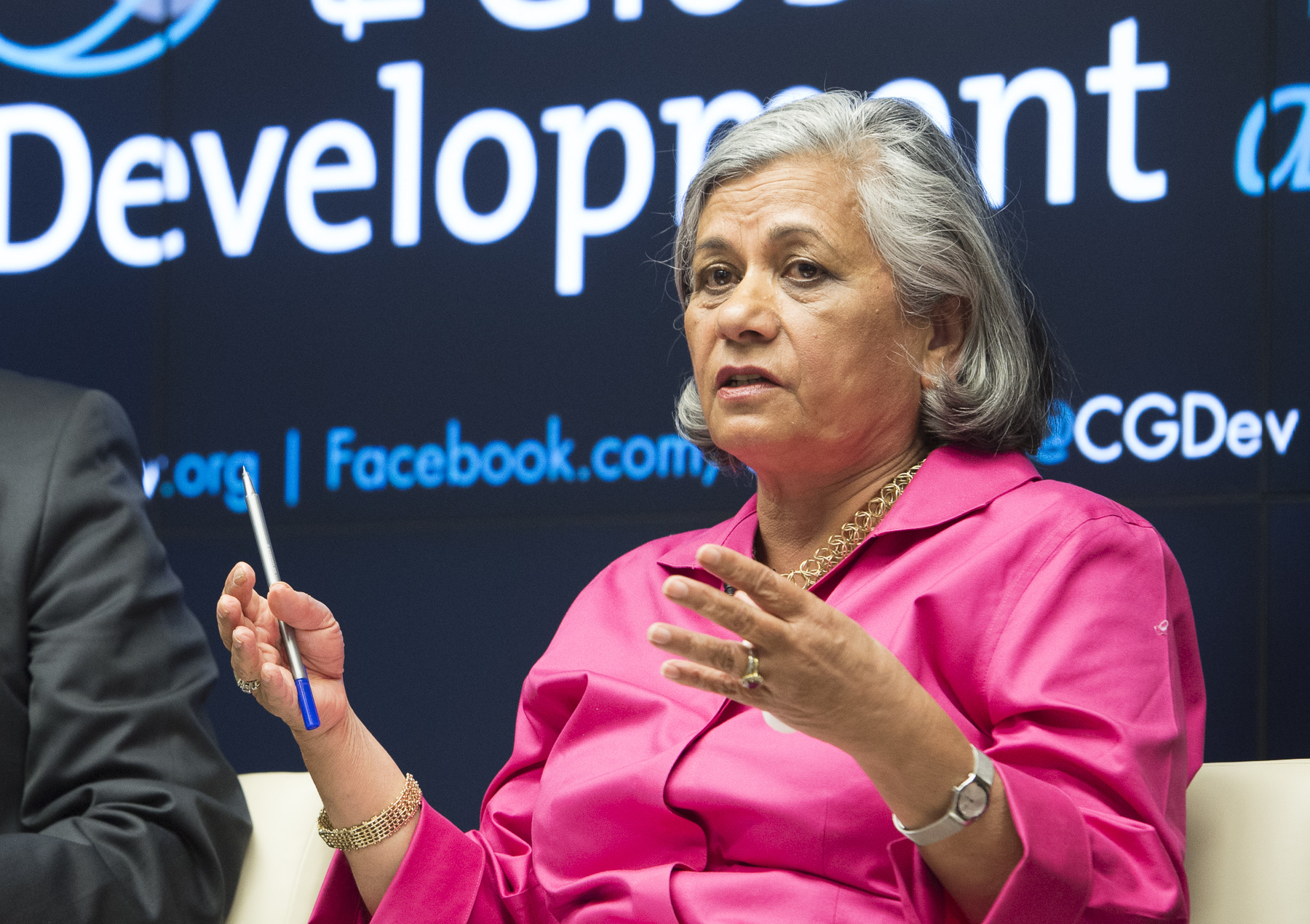London is one of the world’s premier destinations for kleptocrats and corrupt oligarchs seeking to launder ill-gotten gains into property, investments, private school fees and influence. There is no reliable estimate of the total value of laundered funds that impacts on the UK. However the National Assessment of Serious Organised Crime says there is “a realistic possibility the scale of money laundering impacting the UK annually is in the hundreds of billions of pounds” (this includes both domestic and international sources).
The government has pledged to take a whole-of-government approach to combating illicit finance, with an expanded role for the Home Office, Foreign Office, and Department for International Development. This includes reforming the Suspicious Activity Reports (SARs) regime which is at the heart of anti-money laundering efforts. Over 1,000 such reports are submitted by banks, and other intermediaries each day in the UK alone. However globally an estimated 9 out of 10 of SARs are of no immediate value to active investigations, and less than 1 percent of criminal proceeds are confiscated. It is widely argued that closer cooperation between law enforcement and the private sector is crucial to screen out dodgy dealings more effectively. A recent study by RUSI highlights the need for more targeted approaches to engaging with lawyers, accountants, estate agents and trust and company service providers, distinguishing between inadvertent enablers and complicit schemers. The UK government set up a Joint Money Laundering Intelligence Taskforce with the financial sector to better share intelligence. But fines on banks for money laundering failures remain paltry, totalling around $370 million over the past five years, with no banks prosecuted for money laundering.
Illicit Financial Flows and UK Development Policy
When Penny Mordaunt, the secretary of state for development, set out the UK government’s vision for international development in a big speech a few weeks ago, she put combating illicit financial flows front-and-centre.
While perceptions about the scale of illicit financial flows related to low-income countries and therefore the potential for generating new finance for development can be overoptimistic, it is clear that facilitating crime and corruption contributes to instability and undermines development around the world.
This is not a new area for DFID. Since 2006 it has provided support for specialist police units in the Met and City of London Police forces to trace, seize, and return the fruits of grand corruption and to investigate bribery abroad (the two police units have now been combined into the International Corruption Unit at the National Crime Agency). These units have had some success, with 150 investigations of overseas bribery and 27 successful individual prosecutions since 2006. But the amount of money returned to countries has been a trickle; for example, GBP 0.4 million returned to Mauritania and Kenya and USD 7 million has been returned to Tanzania. DFID recently announced that it will gain GBP 4.4 million from the Chad Oil case (where a Canadian energy company bribed Chadian diplomats) to be spent in Chad.
DFID also provides funding through the OECD and World Bank to support tax authorities in developing countries to exchange and receive information on the financial holdings of their tax residents abroad.
What would you tell Penny Mordaunt?
The recent announcements include expanding DFID support for work by the National Crime Agency, developing a Business Integrity Initiative to help UK businesses operating overseas to navigate corruption challenges, and setting up a presence in international financial centres. Beyond these headlines there is not much public detail on how DFID plans to combat illicit financial flows, so I asked some illicit financial flows experts for crowdsourced advice.
Many emphasised that achieving the vision of tackling illicit financial flows for development will depends as much on Penny Mordaunt influencing cabinet colleagues as direct programmatic action. This broader influencing role is also one that DFID has played before, for example it was an important driving force in pushing for the 2010 Bribery Act.
Maggie Murphy, senior manager of global advocacy and policy at Transparency International, says there is an opening right now for a global leader. It is positive that the UK is vocally championing illicit financial flows again, as the rhetoric had dampened since the Anti-Corruption Summit. The City of London has shown an increasing interest, running seminars and calling for greater trust between different sectors. This is welcome, but putting into place actual tangible, strong measures and increasing sanctions is going to generate fall outs. How the City deals with that will be a marker of how serious it is at dealing with the issue. Her advice is:
-
Maintain the UK Bribery Act. This could be a challenge if it is perceived that making quick deals is more important to the UK’s interests in a post Brexit scenario than upholding integrity.
-
Continue DFID support for National Crime Agency investigations. The UK should make clear that investigations will go forward, and not face the threat of being halted for political reasons.
-
Engage with global financial hubs. It is significant that DFID is committed to increasing It its engagement with financial centres. This is difficult in practice as there are restrictions to spending ODA outside of developing countries. That model might be outdated when you consider the role that financial hubs and recipient cities such as London, New York and Miami play in the laundering of stolen cash.
Emile van der Does de Willebois, coordinator of the World Bank/ UN Office on Drugs and Crime Stolen Asset Recovery Initiative, argues that DFID should join the dots between the UK’s new power to seize unexplained wealth and support for capacity to undertake investigations in developing countries. His advice is:
-
Hold intermediaries to account and hit them in the wallet. Even where there is not enough evidence for a criminal conviction, banks can be held liable for damages through civil proceedings. Those who are willfully blind to the blindingly obvious should be held to account.
-
Build capacity in developing countries to conduct financial investigations. Provide support for training of law enforcement in developing countries to enable them to undertake investigations, including asking the right questions of financial centre and bring money laundering and corruption cases to court.
-
Encourage and support developing countries to adopt financial disclosure systems for politically exposed persons, and work with them on implementing illicit enrichment provisions. This provides a basis for identifying the “unexplained wealth” of politicians and senior officials held in the UK and elsewhere, and would support the seizure and confiscation of the proceeds of corruption
Tom Keatinge, director of the Centre for Financial Crime and Security Studies at RUSI, argues that what is needed is a strategy of collaboration not just between the UK and developing countries, but between international financial centres to create a “race-to-the-top” in regulatory and legal standards. He says that the UK should lead in mobilising a group of financial centres to:
-
Make a collective commitment to tackling illicit financial flows
-
Share information: financial crime typologies, details of cases that involve each other and knowledge of criminal actors
-
Share best practice models such as cross-sector intelligence sharing partnerships and unexplained wealth orders.
-
Impose restrictions on financial professionals within this global network using jurisdictions with lower standards of integrity, transparency and cooperation.
Jason Sharman, professor of international relations at Cambridge University and author of The Despot's Guide to Wealth Management, emphasises that efforts to recover stolen assets are unlikely to yield huge sums of untapped finance for development. Nevertheless, confiscating stolen loot acts as a means of accountability and a deterrent against kleptocrats and their facilitators. Under the current system governments that pursue criminal prosecutions are often left worse off by the high cost and uncertainty, while banks and other intermediaries almost always escape accountability. He suggests mechanisms to improve the success rate in parting kleptocrats from their assets:
-
Give NGOs greater legal standing to take civil and criminal legal action against stolen assets located in the UK. The recent conviction of Teodorin Obiang in Paris thanks to a case brought by French NGOs shows what can be done.
-
Audit intermediaries, especially banks, more strictly, fine those who fail on anti-money laundering measures, and use the money to create a fund to support civil and criminal legal action.
-
Make it financially attractive for the private sector to hunt for stolen assets. Most of the skills necessary to conduct complex asset recovery cases are in the private sector; enlist their efforts through mechanisms to allow them to a share of the proceeds.
-
Better coordinate international tax information exchange with anti-money laundering and anticorruption. There has been a step-change in the amount of information exchanged for tax purposes, but too often this is isolated from fighting other kinds of financial crime.
-
Deny travel visas to senior officials from systematically corrupt governments. The “Magnitsky amendment” in the new AML bill would allow the UK to impose financial and travel sanctions on people who commit gross human rights violations.
How should the UK act on beneficial ownership?
Several of the experts raised the issue of beneficial ownership. The UK has championed the idea of fully open beneficial ownership registers (i.e., that the details of the real human beings behind company and trust structures should be in a publicly searchable database). The UK set up its own register in 2016, but the information in it is not verified. The UK Overseas Territories (such as BVI and Cayman) and Crown Dependencies (Jersey, Guernsey, and the Isle of Man) have argued that jurisdictions should be able to maintain “compliant confidentiality,” allowing information to remain private while meeting the international standard of providing adequate, accurate and timely information to tax and law enforcement authorities. In 2016 they agreed a system for sharing beneficial ownership information on request with the UK (within one hour in urgent cases). However on May 1 there was a major shift in the UK’s position when the government agreed to support an amendment which would require the Overseas Territories to develop public registers.
Maggie Murphy advocates for universal and joined up international public registers (such as the prototype demonstrated by the DFID supported OpenOwnership project), arguing that this would help reduce the technical and set-up costs for new jurisdictions and make beneficial ownership information most useful. She believes the decision to require the Overseas Territories to disclose beneficial ownership information will put pressure on the Crown Dependencies and US states to do so too: “These jurisdictions have frequently pointed the finger at each other—the lowest common denominator effect is hopefully being eroded.”
Mike Lewis, researcher on conflict, illicit finance and aid, argues that regulation on company registration in the UK itself lags behind many offshore centres, and prevents UK authorities from effectively investigating and prosecuting organised crime, fraud and corruption. He highlights two problems; the lack of verification, and the lack of any requirement for companies to have a UK nexus (such as a resident director, agent or asset). This means that there can be UK shell companies which offer nothing in the UK for authorities to investigate when there is evidence of wrongdoing abroad ”they often can't find the (unverified) listed directors or controlling parties; and even when they can, they can't (in practice) get investigative cooperation from the jurisdictions where those directors or controlling parties are based.” Emile van der Does de Willebois also argues that the UK’s should strengthen its own system for company registration “the UK needs to show that its register is working and that the information is indeed available and accurate. Are those who intentionally supply false information being investigated and sanctioned? Demonstrating that the system supplies accurate information will be important if it wants the rest of the world to follow suit.”
Professor Peter Reuter, editor of the World Bank book on illicit financial flows, Draining Development, says that more credible measures of the effectiveness of countries’ systems in practice are needed. He highlights mystery shopping experiments where agents pose foreign investors seeking to set up an account with a bank, a trust company or a real estate broker, as a powerful tool to test the strength of countries’ regulations in practice.
Tom Burgis, Financial Times investigations correspondent and author of The Looting Machine: Warlords, Tycoons, Smugglers and the Systematic Theft of Africa's Wealth, argues that while broad approaches to strengthening beneficial ownership registration are important, the UK should target the channels where corporate secrecy poses greatest risk of corruption. He highlights the case of oil and mining companies acquiring or going into partnership with a smaller “juniors” that have undertaken initial exploration of natural resources. He argues that there should be a criminal offence of corporate negligence if a business fails to identify who is the ultimate owner of the company they are dealing with, if it later emerges that the hidden beneficiaries were corrupt officials.
Not just “squeezing the balloon”
Fredrick Eriksson of the Norwegian research institute CMI argues that tackling illicit financial flows effectively requires a clear theory of change with explicit assumptions (he sets out some of the foundations for this in an epic series of blog posts). Marcena Hunter and Tuesday Reitano at the Global Initiative against Transnational Organized Crime call for a development-focused approach to illicit financial flows to prioritise the illicit finances which deliver the greatest harm in specific developing countries and regions.
As these “bigger picture” perspectives reflect, tackling illicit financial flows demands a systematic approach. The trouble with trying to prevent criminal finances using one part of the global financial system is that it is like squeezing a balloon; they shift into other channels. International collective action is often constrained, while regulation can be ineffective (making the compliant more compliant) and costly and have unintended negative impacts on legitimate international investment and access to financial services. So, questions about which actions to take, in which sequence, and how to mobilise, collaborate, incentivise, or punish others are not obvious. As Wilson Prichard at ICTD highlights in a recent paper about the extent to which information on beneficial ownership is likely to enhance the ability of low-income countries to collect (and indeed spend) revenues more effectively in practice is sparse and “in the absence of significant empirical evidence there is a risk of answers being driven by a combination of gut instinct, professional association and ideology.”
While criminal and corrupt finances are by their nature hidden, understanding what can be known about the threat and vulnerability of different jurisdictions and channels can support more effectively tackling illicit financial flows (that is a topic for a future blog post).
Disclaimer
CGD blog posts reflect the views of the authors, drawing on prior research and experience in their areas of expertise. CGD is a nonpartisan, independent organization and does not take institutional positions.




